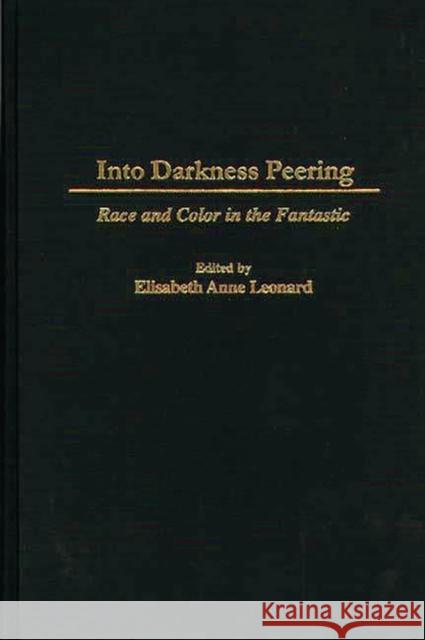Into Darkness Peering: Race and Color in the Fantastic » książka
Into Darkness Peering: Race and Color in the Fantastic
ISBN-13: 9780313300424 / Angielski / Twarda / 1997 / 208 str.
Unlike many classic works of fiction, literature of the fantastic enjoys mass popularity. Because the fantastic is so much a part of popular culture, fantasy literature can represent or address the racial attitudes of its audience. Representations of race in the fantastic provide a measure of the concern the culture has for racial matters. If a work is racist, whether consciously or not, it may perpetuate racist attitudes unless it is carefully examined. At the same time, literature of the fantastic is able to present possible worlds rather than real ones. It is thus a literature of possibility, in which racial matters may be addressed and exposed, so that readers may become more conscious of the evils of racist attitudes. This volume explores the significance of race and color in the works of a wide range of authors, including Octavia Butler, Robert Heinlein, Stephen King, and Robert Silverberg.
This volume explores the significance of race and color in the works of a wide range of authors, including Octavia Butler, Joseph Conrad, Ursula Le Guin, Robert Heinlein, Stephen King, and Robert Silverberg. The chapters are written by expert contributors who approach their topics as both products of a particular cultural moment and as imagined alternatives. While most of the works examined are science fiction, the book also looks at horror and fantasy writing. Topics discussed include colonialism and empire, Creole identity politics, race in cyberspace, and witchcraft in Salem.











